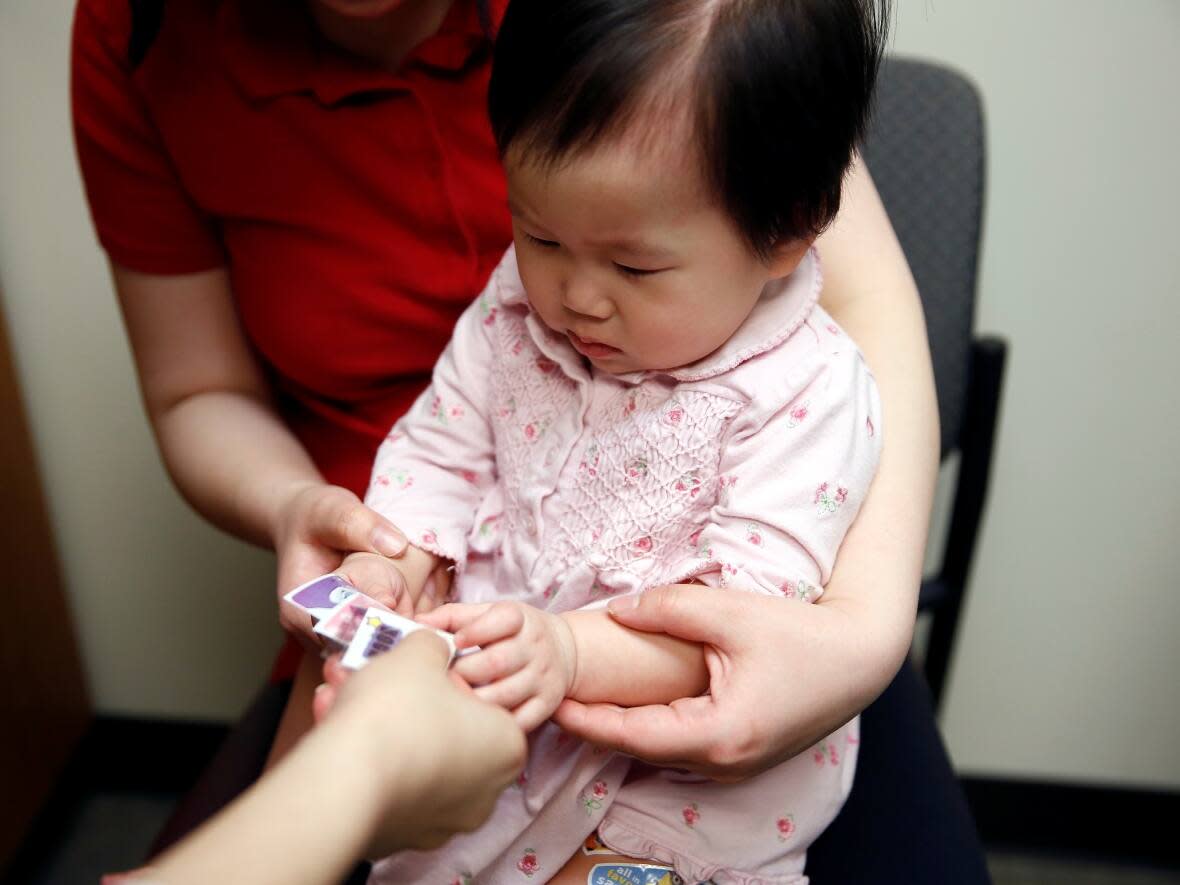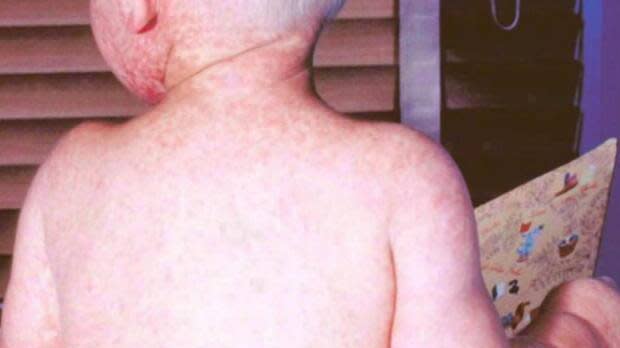Measles a growing concern as March Break approaches

Ottawa Public Health (OPH) is taking steps to prevent a potential outbreak of measles in the city, it told members of the board of health on Monday evening, as global vaccination rates appear to have dropped during the COVID-19 pandemic.
"The re-emergence of certain vaccine-preventable diseases is being seen across the world and it is cause for concern," Medical Officer of Health Vera Etches told the public meeting over Zoom.
We do encourage all Ottawa parents and caregivers to ensure their children are vaccinated. - Dr. Vera Etches
"We do encourage all Ottawa parents and caregivers to ensure their children are vaccinated."
OPH estimates "thousands" of children and youth under 18 in Ottawa are currently missing routine vaccinations that would protect them from polio, meningitis and HPV, as well as measles.
The agency is assembling a team to prepare for any potential outbreaks of the highly contagious viral infection, said Etches.
The World Health Organization issued a warning earlier this month to encourage countries to prepare for the resurgence of measles, after noting a decline in global vaccination coverage for the measles, mumps and rubella vaccines.
"We're also raising awareness among health-care providers locally about the heightened risk of measles in particular with more travel during the March break season," Etches said Monday.
Measles vaccination rates are generally high across Canada, but foreign travel remains a common source of infection among Canadians.
Measles was last detected in Ottawa in 2019.

A telltale rash
Measles normally causes a fever, cough and a telltale rash that starts on the face and spreads down the body. Symptoms usually appear 10 to 14 days after exposure, but a person is contagious starting four days before the rash appears, according to OPH.
The virus can last in the air and on surfaces for up to two hours.
According to a measles fact sheet from the Ontario government, the virus can cause complications in up to 10 per cent of people infected. Those complications include pneumonia and encephalitis, a brain infection that can cause brain damage and potentially death.
The virus can be especially dangerous to infants.
The normal schedule for measles vaccination in Ontario includes one shot at 12 months and a second shot at four years of age. Together, the shots provide nearly 100 per cent protection for life, said OPH.
Children and youth who require routine vaccines can get them through their own family doctor or at one of OPH's vaccination clinics.


